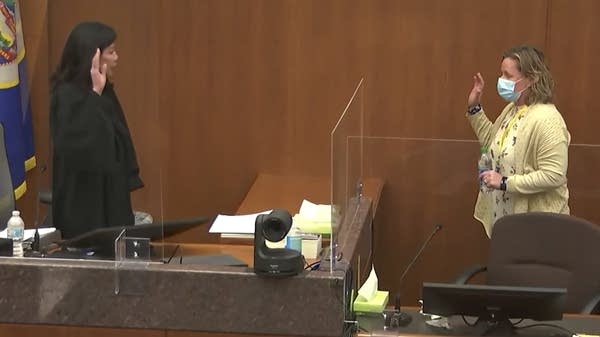Kimberly Potter trial: Case goes to jury as closing arguments end

Hennepin County Judge Regina Chu (left) swears in former Brooklyn Center police officer Kimberly Potter before she testifies in court Friday at the Hennepin County Government Center in Minneapolis.
Court TV, via AP, pool
Go Deeper.
Create an account or log in to save stories.
Like this?
Thanks for liking this story! We have added it to a list of your favorite stories.


